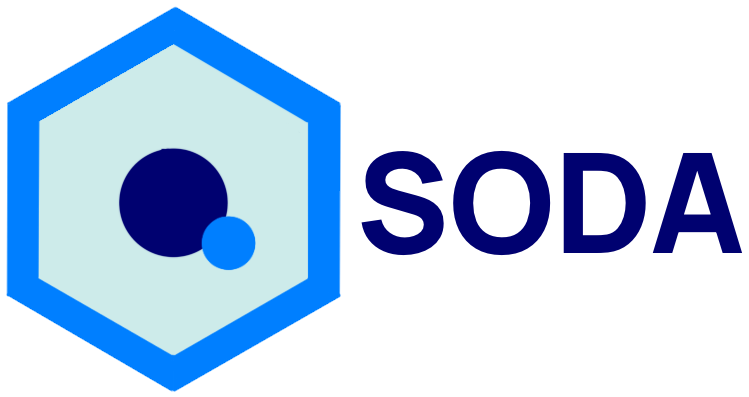DISCIPLINE
The Hidden Force Behind Every Successful Digital Organization
Most digital transformations collapse under the weight of good intentions. Vision is everywhere. Buzzwords abound. Frameworks get adopted. Yet little changes. Why? Because vision without discipline is a dream—and transformation without it is a myth.
Discipline is the steady hand behind every great leap in digital maturity. It is the internal operating system that aligns effort with outcomes, helps organizations navigate change, and turns bold ambitions into consistent delivery. In the System of Disciplined Agility (SODA), discipline is not about rigid control. It is about clarity, intentionality, and accountability—at every level.
Why Discipline Matters More Than Ever
In the age of disruption, set-and-forget strategy is not enough. Companies today operate in complex, rapidly shifting environments where decisions must be made under uncertainty, and execution must adapt in real time. In such a climate, discipline becomes the stabilizing force.
Digital capabilities—software development, data science, AI—demand disciplined leadership, disciplined operations, and disciplined individuals. Not as authoritarian oversight, but as a culture of excellence. Without it, transformation becomes an expensive game of buzzword bingo.
The Three Layers of Discipline in SODA
SODA embeds discipline at three interconnected layers:
Leadership Discipline Great leadership is not about status updates—it is about making decisions that endure. SODA draws from Peter Koestenbaum’s Leadership Diamond: vision, ethics, reality, and courage.
Vision inspires great outcomes.
Ethics ensures fairness and trust.
Reality keeps plans grounded.
Courage allows bold action despite risk.
Together, these attributes enable leaders to set meaningful goals and adapt as circumstances evolve. Leadership discipline means asking hard questions, not settling for mediocrity, and being willing to pivot when the facts demands it.
2. Operational Discipline Discipline in operations means focusing on outcomes over output. SODA relies on Objectives and Key Results (OKRs) to anchor purpose at every level. OKRs help:
Align teams to shared goals that align to leadership’s vision.
Track real impact, not task completion, and avoid micromanagement.
Drive individuals and maintain focus.
This structure is flexible enough to support agile methods, yet firm enough to prevent drift. It prevents teams from falling into the trap of process for process’s sake.
3. Personal Discipline Transformation is not just an organizational phenomenon—it is a personal one. Individuals must develop the behaviors and mindset that allow disciplined agility to thrive. SODA encourages reflection in many personal areas, highlighting these:
Accountability: Taking ownership even when things go wrong.
Motivation: Staying focused on what matters without shortcuts.
Patience: Doing quality work and nurturing long-term impact.
Stamina: Managing energy to sustain never-ending progress without burnout.
These traits are not innate for everyone—but they can be developed by anyone. With coaching, feedback, and support, individuals can cultivate personal discipline that scales into team capability.
Avoiding the Discipline Traps
Discipline is often misunderstood. It is not about micromanagement or perfectionism. It is not a tool for control, but for alignment. Organizations that weaponize discipline create fear, not performance.
SODA reframes discipline as the opposite of chaos—not of creativity. It is the force that turns agile teams into trusted builders. It is what makes a small team with purpose outperform a large team with confusion. It is what allows enterprises to stretch without snapping.
What Discipline Looks Like in Practice
In digitally mature organizations:
Leadership makes disciplined decisions.
Resulting OKRs are revisited regularly and refined based on learning.
Teams welcome hard conversations that sharpen focus.
Stakeholders embrace trade-offs based on value to the enterprise instead of competing for every demand.
The result is not rigidity—it is resilience. A disciplined organization moves quickly because it knows where it is going and why.
Discipline and Agility: Partners, Not Opposites
Many falsely assume discipline restricts agility. In truth, they are mutually reinforcing. Discipline sets the direction; agility accelerates the movement.
OKRs illustrate this perfectly: the objective is firm, the key results flexible. Teams operating with agility succeed when they are grounded in purpose and free to adapt in execution. Without discipline, agility becomes chaos. Without agility, discipline becomes bureaucracy.
The Strategic Payoff of Discipline
Discipline delivers compounding benefits:
Faster learning from structured experimentation.
Higher trust from transparent decision-making.
Better products from focus and feedback.
Stronger teams from aligned expectations.
These outcomes do not happen by accident. They emerge when leaders set a disciplined tone and reinforce it through example, feedback, and support.
A New Definition of Discipline for the Digital Era
In the SODA framework, discipline means:
The deliberate alignment of decisions, behaviors, and actions with a shared digital purpose—executed consistently and adaptively across the organization.
It is not a fixed plan. It is a living practice. It is what turns strategy into execution, and potential into results.
Think Of It This Way
Many organizations talk about transformation. Few complete it. Even fewer sustain it. Discipline makes the difference.
It is not about working harder. It is about working smarter, with integrity, and in alignment with a higher purpose. SODA makes this discipline visible, teachable, and repeatable—so it can scale.
In a world where agility gets the headlines, discipline builds the foundations. And without it, no transformation lasts.
__
Credit where credit’s due:
Leadership: The Inner Side of Greatness, A Philosophy for Leaders. New and revised, updated, subsequent edition. By Peter Koestenbaum. San Francisco: Jossey-Bass, 2002.
Measure What Matters: How Google, Bono, and the Gates Foundation Rock the World with OKRs. By John Doerr. New York: Portfolio, 2018.
